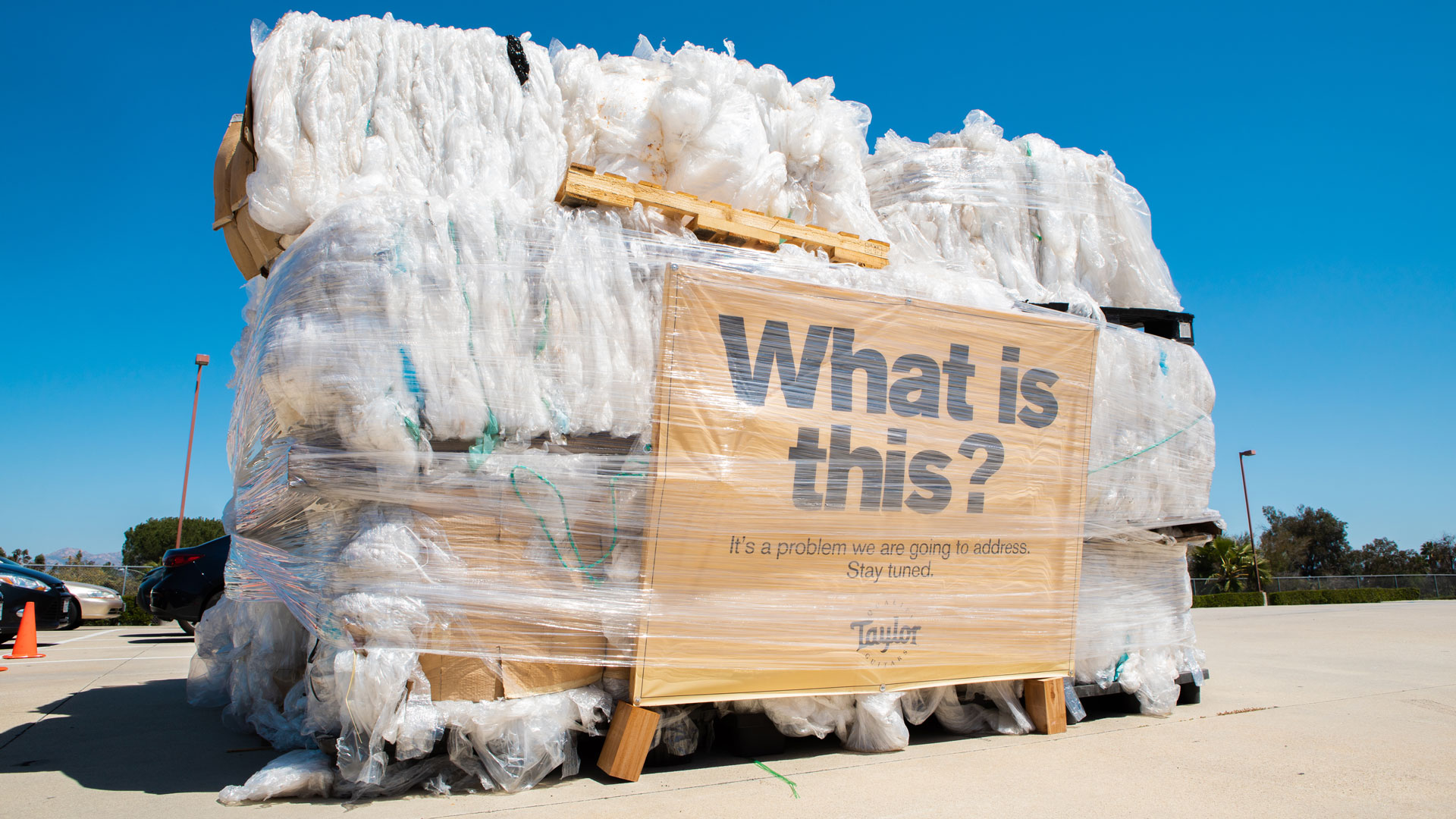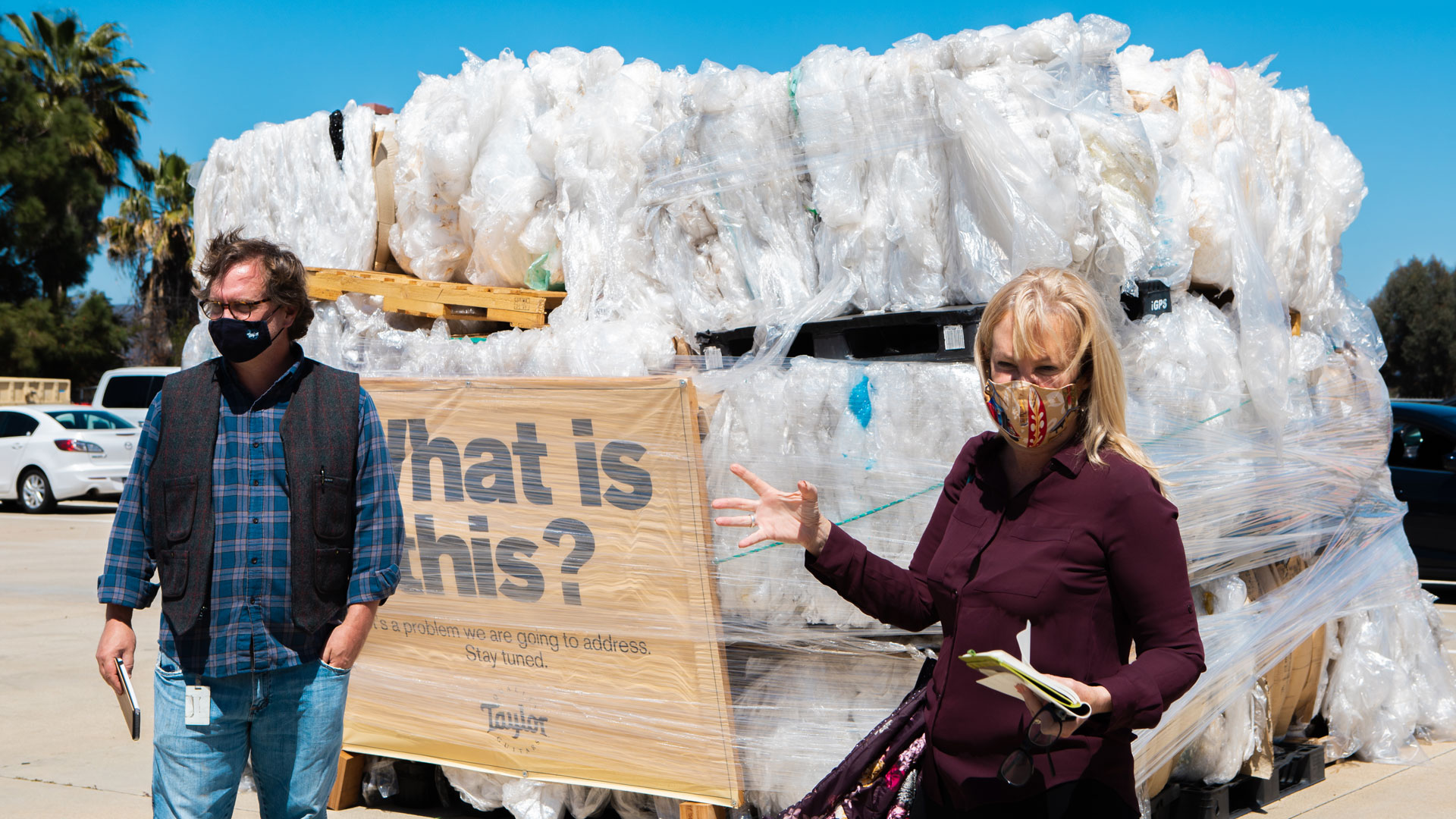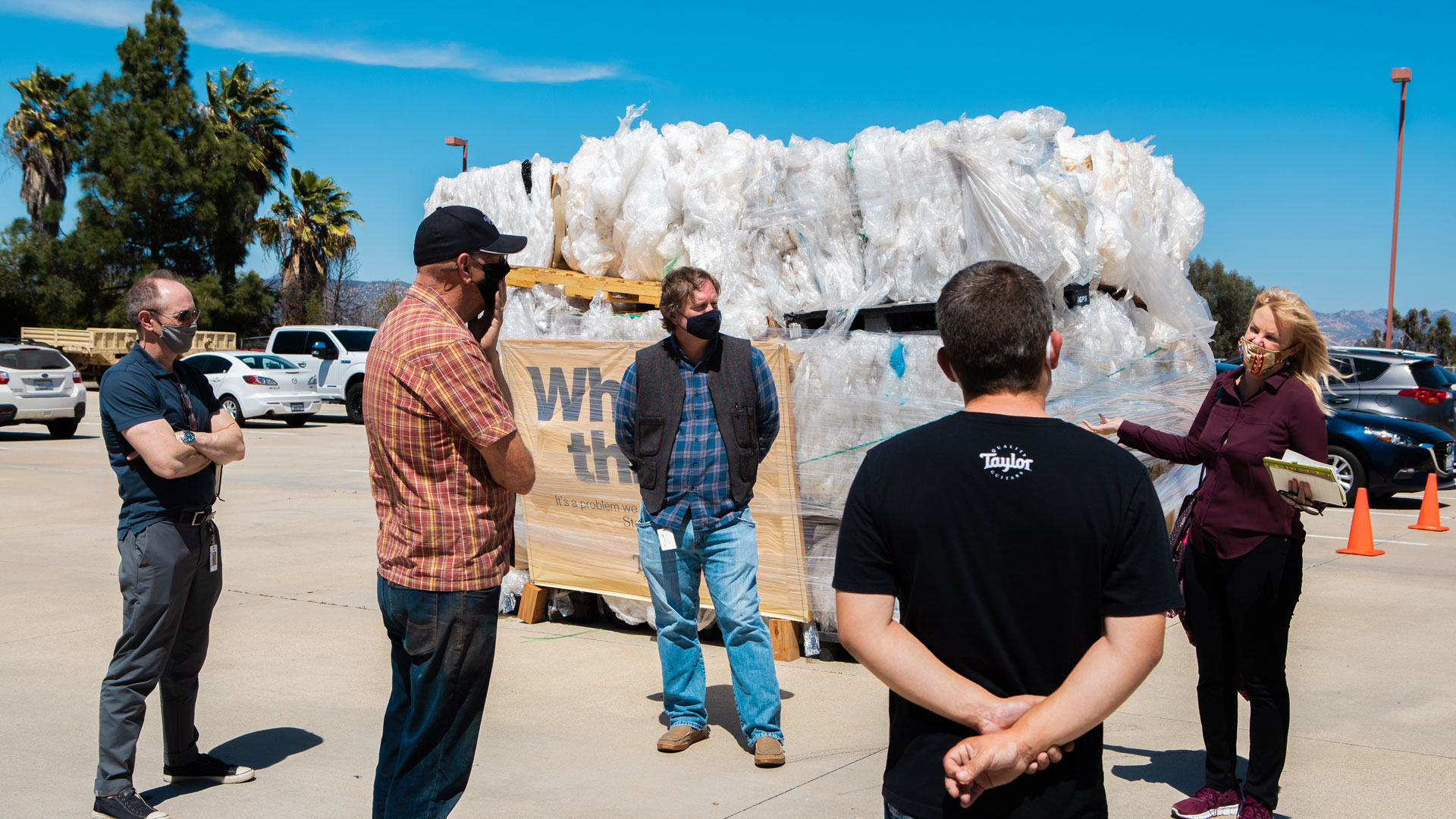For years now, we’ve been reporting on Taylor’s efforts to develop more sustainable business practices. Our most prominent initiatives — and storylines — have keyed in on our tonewood supply chain and our drive to cultivate a healthier future for the woods we use, including the communities that support those sourcing efforts. The “Big Three,” as Taylor Director of Natural Resource Sustainability Scott Paul calls them, are the Ebony Project in Cameroon, which has funded groundbreaking research into ebony ecology and spawned a scalable (and growing) community replanting program; native forest restoration in Hawaii, including the planting of koa trees; and our burgeoning Urban Wood program, which aims to create a circular economy by making guitars with wood from end-of-life urban trees and stimulate increased replanting projects in those communities.
While we’re proud of the progress we’re making on those fronts, our commitment to ethical practices demands that we scrutinize every aspect of our operation. More specifically, we need to look for areas in which we’re falling short and work toward better solutions.
This mindset has led to a comprehensive review of our manufacturing processes and campus operation. Over the last couple of years, Scott Paul has used the lens of sustainability to lead an internal audit to identify our successes and shortcomings. While we’ve made many improvements (a major reduction of single-use, disposable products on campus, more EV charging stations, a robust battery recycling program, water-filling stations in buildings across campus, the use of a sophisticated dashboard to better manage our energy consumption needs, to name a few), we recently identified an issue that is quite literally a growing problem for us: plastic stretch wrap. We’re talking about the plastic film we use to secure pallets of stacked guitars (in their cases) being transported, or to wrap wood we move around on pallets.
While the wrap plays an essential role in protecting valuable parts and goods in transit, given the volume of our operation, we go through a good amount of the stuff. While it’s nowhere near the consumption levels of a big box store, it adds up.
In the past, we would bale the used wrap, and our recycling vendor would sell it to a broker, who in turn would send it to China to be recycled. But in 2018, China banned the import of most plastics, and we’ve subsequently learned that there’s a strong likelihood the plastic was in fact just being dumped overseas or worse — burned in local communities. We’re now struggling to find a U.S.-based company that will recycle it. We’ve contacted other businesses, large and small, to see what they do with theirs, only to find that no one else seems to have a viable solution right now either.
We’ve also talked to several service providers and asked each of them the same set of questions: Will they re-sell it? What are they going to do with it? If recycled, into what? How far will it be trucked or shipped? Will it be exported? As it turns out, most shrink wrap is now being landfilled or incinerated, just as it likely was in China.
We wouldn’t mind paying to recycle the plastic wrap if it were happening responsibly, in a safe, environmentally-sound facility, but we don’t want it added to a landfill or incinerated. Yet we don’t currently have a solution. And with each day the problem grows. So, in the meantime, after consulting with Scott, Bob Taylor decided our first step toward a solution would be to amplify the problem by making it more visible to everyone on campus. Our facilities team started moving bales of our used stretch wrap to the middle of the parking lot outside our shipping warehouse, and adding what we accumulate to it each month — about two to three bales. We currently have a small mountain in the making. We even created a display sign with a thought-provoking message to employees:
What Is This?
It’s a problem we’re going to address. Stay tuned.
What’s more, the bales only represent about half of what we use to wrap guitars; the other half leaves our facility when we ship pallets.
Scott Paul points out that this plastic wrap problem isn’t exclusive to Taylor.
“Think of all the shrink wrap discarded from big box stores, supermarkets, and retailers all over the country,” he says. “Most of it is being landfilled, and some is being incinerated.”
Scott and others on our company’s “Green Team” committee began to investigate possible solutions, including alternative recycling options and the use of other materials that were easier to recycle. Scott also reached out to an expert who might be able to help.
Jan Dell is a chemical engineer with 30 years of experience, having worked in 45 countries for major corporations in the manufacturing sector. During her career, she led programs to implement sustainable business and climate resiliency practices for the likes of Nike, Gap, Mattel, and others.
In 2018 she pivoted in her career, became independent, and started an NGO called The Last Beach Cleanup to stop plastic pollution. One of their priority campaigns aims to stop plastic waste exports to poor countries. In 2019, she was named a National Geographic Explorer and received a small grant to help cities reduce plastic pollution. She was also named to California’s Statewide Recycling Commission in 2020.
In April, Dell visited the Taylor campus to meet with Scott Paul, Bob Taylor and a small group of other Taylor employees who are part of our informal task force — gathering, appropriately, in front of our hill of plastic — for an introductory conversation. Dell shared some of her knowledge, including the reality check that only a small fraction of plastic waste made is actually recycled. She noted that 3.4 billion pounds of plastic film waste are generated in California alone each year, but that there are only a few plastic film recyclers in California and Nevada, and they can only reprocess about 100 million pounds of it. That’s about 3 percent, so it’s no surprise that Taylor’s plastic heap is growing.
We’ve explored the use of alternative plastic wrap products that are marketed as being biodegradable, but we found that they work less effectively, and Dell says there are other obstacles preventing its wider use, like the fact that most composting operations don’t want to take bioplastic waste because it doesn’t safely biodegrade and becomes contamination in the compost.
“And today’s landfills are designed to store materials to prevent methane emissions, so the plastic film won’t biodegrade and won’t disappear in a landfill,” she says.
Dell advised that the best course of action Taylor can pursue is to continue to minimize plastic use where possible. Taylor can also create greater demand for plastic wrap that has a percentage of recycled content by asking our vendors to supply it and by encouraging other companies to do the same. This will help scale up the supply chain infrastructure around the product and accelerate usage.
Meanwhile, our plastic display has already made an impact on Taylor employees. After we showcased the issue in our internal newsletter, a number of Taylor employees — make that new employee-owners — have taken the initiative to find ways to reduce our stretch wrap consumption in their departments.
In the meantime, we’re continuing to educate ourselves with the help of people like Dell and actively pursuing better options. We’ll be sure to keep you updated on the status of our plastic waste and the alternative solutions we develop.


